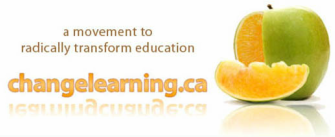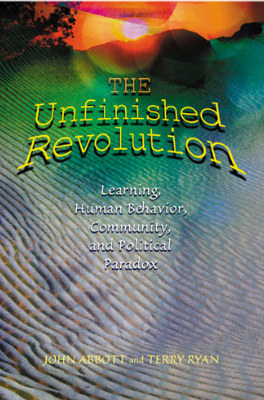This article by John Abbott and Terence Ryan appeared in the Spring, 1999 issue of Education Canada.
|
If young people are to be equipped effectively to meet the challenges of the 21st century it is surely prudent to seek out the very best understandings from current scientific research into the nature of how humans learn before considering further reform of the current system.
This article by John Abbott and Terence Ryan appeared in the Spring, 1999 issue of Education Canada.
0 Comments
Bad teaching doesn’t just happen. It’s practically demanded by systemic factors. Alfie Kohn, Writer and Speaker
I, like many others, tired myself out working to place the new findings about learning within the present system. They don't just not fit; they collide head on. John Abbott
Not only is the system upside-down, but by failing to recognize the significance of informal learning outside of school, it is inside-out as well. John Abbott
Deep down many children became deeply frustrated, with so much of their latent predispositions just untapped by the daily routine of instruction. The daily challenge of making sense of their environment had been replaced by a dull recognition of waiting to be told what to do and how to do it. John Abbott, Terence Ryan
We must ask deeper questions about the very institutions of schooling than have so far been raised in the school reform movement with its short-term panaceas of more accountability, site-based management, standardized tests, prescribed curricula, and longer hours for teachers and students. We have to be much smarter than this and accept that we are dealing with a deep systemic crisis. John Abbott, Terence Ryan
The Initiative focused on learning, not schooling, for the obvious reason – at least to us – that if we weren’t clear about how people learned, we couldn’t begin a proper consideration of educational reform. Our standpoint was that the crisis in education stems from misunderstandings about how humans learn rather than any generalized failure of schools and teachers. In other words, we quickly realized we were dealing with a crisis in childhood, not simply a crisis in schooling. The conferences echoed the more widespread problem of how society at large can convert disparate new findings on learning into useful route maps for the future of education.
Read more at The 21st Century Learning Initiative. Our public schools are in danger of collapse, and if they do, we will all pay the price.
Healthy public schools are essential for a healthy economy and creating informed citizens. But we are neglecting our schools in a perversely malicious way: making impossible demands on them, strangling them financially, creating trivial changes for the sake of ideology, avoiding necessary changes, and just plain ignoring them. Read more |
Categories
All
Archives
August 2015
|


 RSS Feed
RSS Feed
